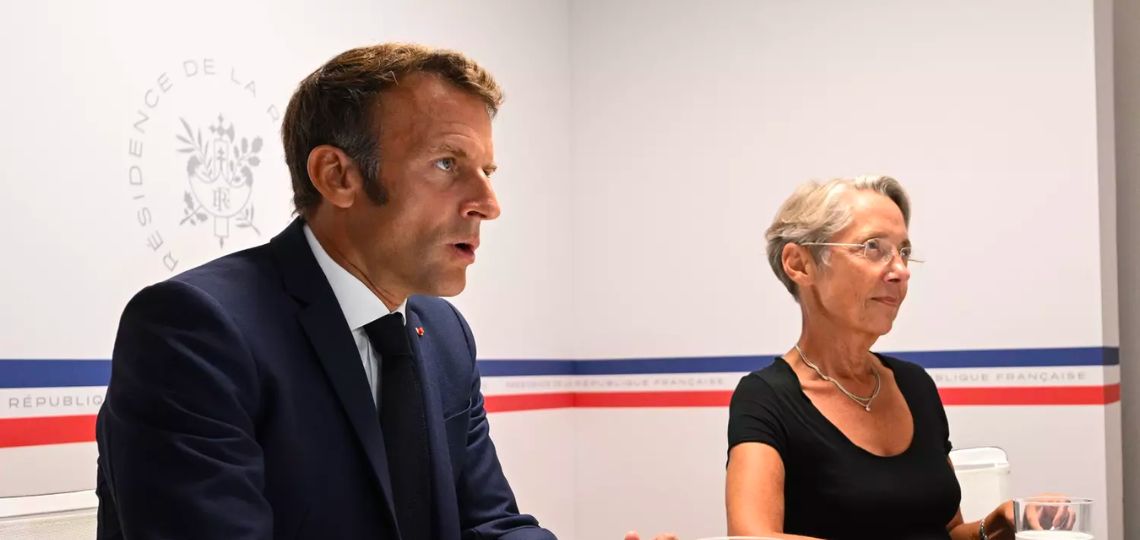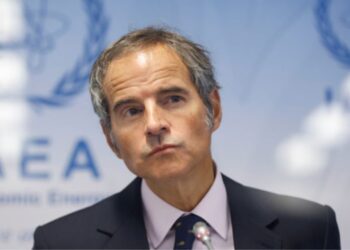With gas stocks 92% full, the planned restart of nuclear power plants “this winter”, and a healthy dose of wastefulness, the French government hopes to avoid forced blackouts this winter, while calling for “European solidarity”, including gas and electricity exchanges with Spain and Germany.
At the end of a Defense Council under the presidency of Emmanuel Macron to take stock of gas and electricity supplies and examine scenarios to avoid shortages, Agnès Pannier-Runacher, the Minister of Energy Transitition, said Friday that France could “avoid binding measures” through “sobriety and European solidarity.”
“If the situation is serious, we have activated all the levers at our hand to prepare for winter,” she assured in a statement.
The Defense Council brought together the ministers responsible for energy issues, at a time when Russian gas flows are drying up and the French nuclear fleet is severely unavailable.
Gas flows from Russia have dried up and Europeans are preparing for a possible total shutdown, in retaliation for sanctions against Moscow since the invasion of Ukraine on February 24. The giant Gazprom announced this week the end of its deliveries to Engie.
“The Council has particularly examined relations with Germany and Spain, because you know that we have with these two countries important exchanges of gas and electricity, and we have concluded that this mutual solidarity should be strengthened from this winter,” said Pannier-Runacher.
EU energy ministers will meet again on September 9 to discuss the situation at an extraordinary meeting. The European Commission is proposing to cap part of wholesale electricity prices, adopt regulated tariffs for the most vulnerable and strengthen incentives to reduce consumption, according to a draft consulted Friday by AFP.
French particularity
In France, “on electricity, 32 reactors are shut down, some for stress corrosion and others for routine maintenance. EDF is committed to restarting all reactors this winter,” said the minister.
“We are monitoring the situation closely with weekly updates and we are particularly vigilant to ensure that this schedule is kept,” she insisted.
Having begun at around 10:00 am at the Elysee Palace, this Council brought together the ministers in charge of the file, such as the Prime Minister Elisabeth Borne, the Minister of Economy Bruno Le Maire, the Minister of Public Accounts Gabriel Attal and the ministers in charge of the Ecological and Energy Transition Christophe Béchu and Agnès Pannier-Runacher, as well as experts.
The Minister said that the managers of electricity and gas networks would announce “mid-September” the scenarios considered according to the temperatures envisaged, and the evolution of Russian gas deliveries in particular.
French gas stocks are 92% full, said the director, saying she was very confident to reach the target of 100% at the beginning of the winter.
Criticism from the opposition
Initially reserved for defense and security matters, the defense councils have been used on numerous occasions by Emmanuel Macron to manage the Covid-19 crisis, provoking criticism from political oppositions about the solitary exercise of power.
LFI MP Alexis Corbière denounced on LCI a “somewhat opaque system” acting “ultra-presidentialism” of Emmanuel Macron who “decides everything” and “puts himself on stage.”
“This is not satisfactory,” reacted RN deputy Sébastien Chenu on France 2, for whom “President Macron is trying to mask” his “total short-sightedness” by “convening a Defense Council outside the democratic game in the basement of the Élysée”.
Laurent Berger, secretary general of the CFDT, said he did not “expect much” from the Defense Council, but called on the government to reactivate the short-time working scheme and to target support measures at the lowest income groups.
The cost of the “tariff shield” on energy prices amounts to 24 billion euros since its deployment in the fall of 2021 to cushion the shock of inflation, said Thursday evening the Ministry of Economy and Finance.






